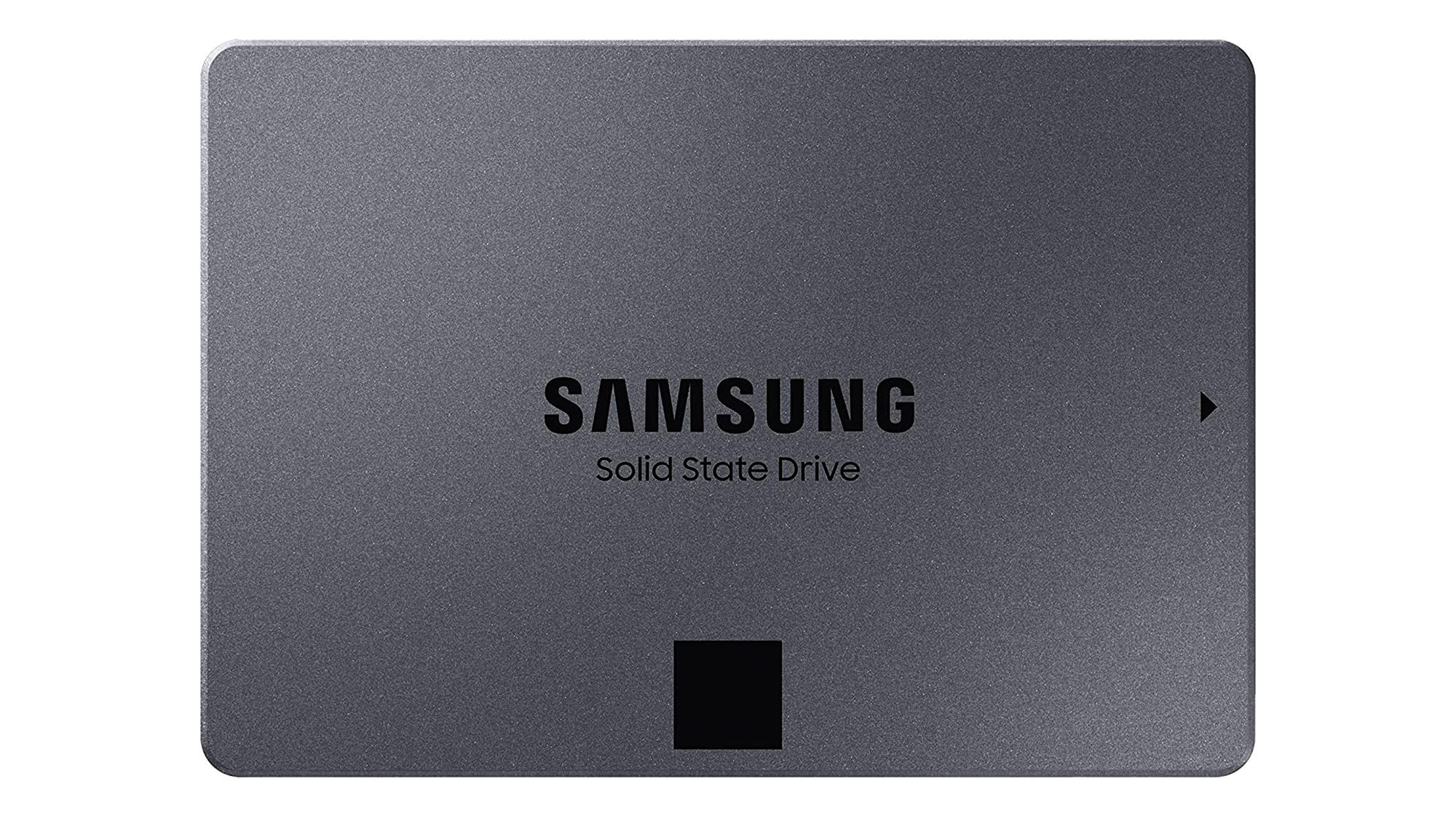Samsung 870 QVO review: Cheap and speedy
The QVO can give your laptop or lightweight PC a significant speed boost for a jaw-dropping price


-
+
Outstanding value
-
+
Useful bundled tools
-
+
Fantastic performance
-
-
Lover endurance rating than TLC drives

All SATA disks look somewhat alike, but the Samsung 870 QVO is almost a carbon copy of the 870 Evo. That’s because it’s effectively the same drive, with one important difference – it uses four-bit QLC chips, in place of the more mainstream TLC tech.
It’s a smart option to offer. Packing additional bits into a memory cell normally slows down performance, but that’s moot with SATA drives as the interface bottlenecks the available bandwidth anyway. The AS SSD benchmarks clearly illustrate the point, reporting precisely the same speeds from the 870 QVO and its TLC counterpart. The QVO even managed to pull ahead in the PCMark 10 storage tests – the 2TB model racked up a system disk score of 1,240 and a data disk score of 1,604, making it one of the speediest SATA drives we’ve ever seen.
Meanwhile, QLC is cheaper than TLC, as it requires fewer physical chips to store a given amount of data. The 1TB model costs £85, so just 9p per gigabyte, while the 2TB version we tested drops that further to 8p. The economics of QLC allow Samsung to produce reasonably affordable 4TB and 8TB models too, available online for £302 and £626 respectively.
The QVO might sound like a win-win, but there’s a compromise. The cells in a QLC SSD have to work harder than the ones in TLC drives, reducing their lifespan. While the 870 Evo is rated for 600TBW, the QVO promises a lesser 360TBW – and the warranty is shorter too, at three years versus five.
This doesn’t have to be a deal-breaker. While 360TBW would be unacceptable for a database server, it’s fine for an everyday desktop or data drive. Endurance scales with capacity too, so the 2TB model is good for 720TBW, which we doubt a regular desktop user will ever hit.
If you’re worried, you can use the Samsung Magician tool for Windows to keep track of the health of your drive. As well as providing technical diagnostics, this also lets you securely erase the disk or activate hardware encryption. It’s partnered with the Samsung Data Migration utility, which simplifies the task of cloning a working system onto a new disk.
The limited write endurance of the 870 QVO means we can’t recommend it for intensive, mission-critical roles. But if you want to give a new lease of life to a laptop or lightweight PC, it can provide the space you need, along with first-rate SATA performance, at an unbeatable price.
Samsung 870 QVO specifications
| Capacity | 2TB |
| Cost Per Gigabyte | 8p |
| Interface | SATA 6Gbits/sec |
| Claimed Read | 560MB/sec |
| Claimed Write | 530MB/sec |
| Warranty | 3yr |
Get the ITPro daily newsletter
Sign up today and you will receive a free copy of our Future Focus 2025 report - the leading guidance on AI, cybersecurity and other IT challenges as per 700+ senior executives
Darien began his IT career in the 1990s as a systems engineer, later becoming an IT project manager. His formative experiences included upgrading a major multinational from token-ring networking to Ethernet, and migrating a travelling sales force from Windows 3.1 to Windows 95.
He subsequently spent some years acting as a one-man IT department for a small publishing company, before moving into journalism himself. He is now a regular contributor to IT Pro, specialising in networking and security, and serves as associate editor of PC Pro magazine with particular responsibility for business reviews and features.
You can email Darien at darien@pcpro.co.uk, or follow him on Twitter at @dariengs.
-
 Westcon-Comstor and Vectra AI launch brace of new channel initiatives
Westcon-Comstor and Vectra AI launch brace of new channel initiativesNews Westcon-Comstor and Vectra AI have announced the launch of two new channel growth initiatives focused on the managed security service provider (MSSP) space and AWS Marketplace.
By Daniel Todd Published
-
 Third time lucky? Microsoft finally begins roll-out of controversial Recall feature
Third time lucky? Microsoft finally begins roll-out of controversial Recall featureNews The Windows Recall feature has been plagued by setbacks and backlash from security professionals
By Emma Woollacott Published
-
 The UK government wants quantum technology out of the lab and in the hands of enterprises
The UK government wants quantum technology out of the lab and in the hands of enterprisesNews The UK government has unveiled plans to invest £121 million in quantum computing projects in an effort to drive real-world applications and adoption rates.
By Emma Woollacott Published